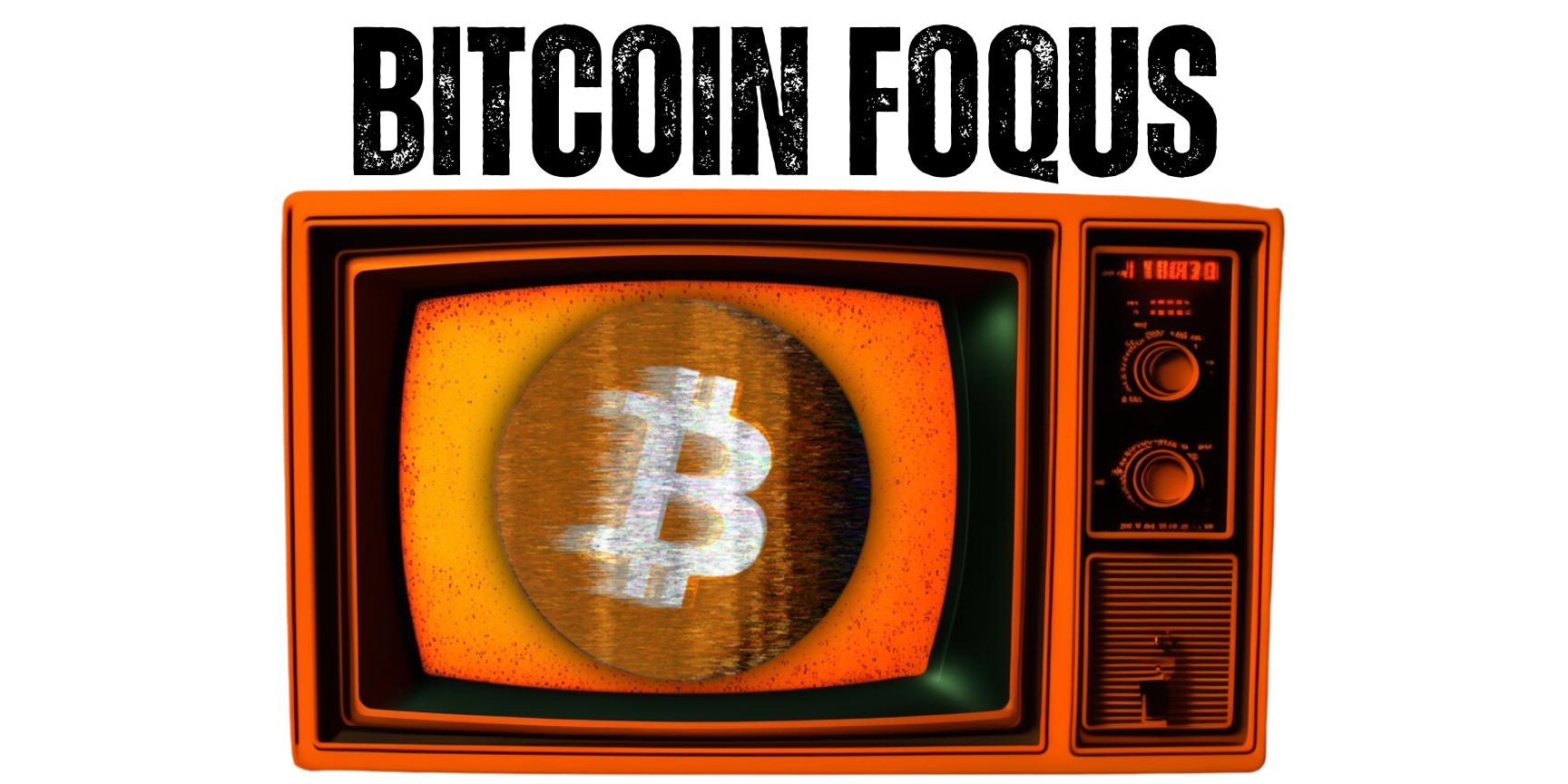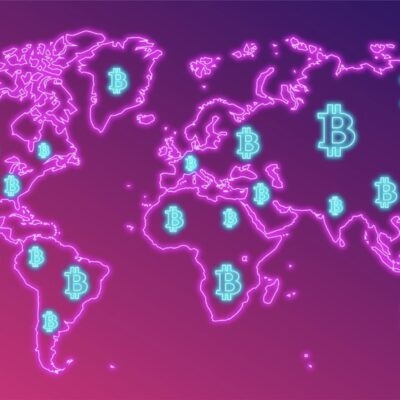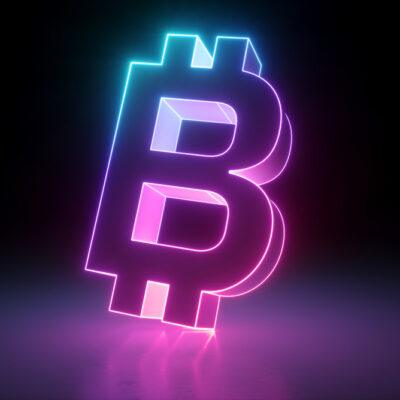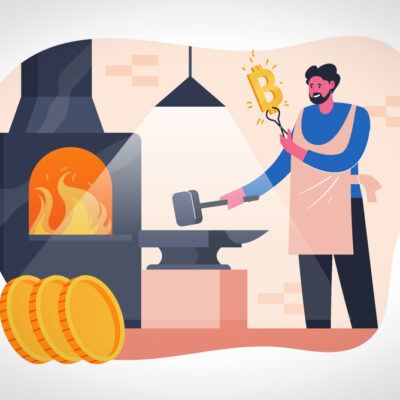
One of the main narratives put forth by bitcoiners is that bitcoin is a great inflation hedge due to its hard cap of 21 million coins. 19 million coins have already been issued since the launch of the network in 2009, and the next 2 million coins will be algorithmically distributed over the next 100 years. The past is verifiable. The future is predictable. Everything is transparent.
Compare that with the US dollar, and the difference is striking. We don’t know how many units of any individual currency are in existence right now (thanks to the Eurodollar), and we don’t know how many will be created in the future. When you start looking at currencies outside the US, the situation often gets even worse.
One thing is certain with fiat currencies, and it’s that they will continue to be debased until they are worth nothing. Does the fixed issuance rate and eventual hard cap of 21 million coins solve this problem
On a long enough time horizon, the survival rate of everyone drops to zero
Chuck Palahniuk, Fight Club
Bitcoin’s 21 million limit may seem like an overly simple fix to this problem, but I think it really is that simple. Given a choice, would you rather have hard money that can’t be manipulated at a whim or trust that your government institutions will act responsibly? I think the answer is obvious.
Bitcoin VS Inflation
Global Inflation Throughout History
Inflation of the money supply is not something new, and there are many historical events describing not just financial ruin, but total chaos and the breakdown of society due to debasement of the currency.
Inflation In Ancient China
The earliest known example of hyperinflation happened in Ancient China, where paper money began to circulate as “flying cash”. Paper money in China appeared in several forms across multiple dynasties and eventually led to hyperinflation of the currency during the Yuan dynasty as the government printed huge amounts of paper to finance the military
After that money failed, they returned to a silver standard for a while, but China would once again experience hyperinflation during the 20th century communist revolution. Again, the money printer went brrrrr because the government needed to finance a war. Global superpowers printing money to pay for the military is a recurring theme throughout history.
Inflation In Ancient Rome
Another historical hyperinflationary event was during the time of the Roman empire, where the amount of precious metal in a coin was consistently devalued over centuries to the point where coins that were previously made of pure silver eventually contained only 0.5% silver. If you guessed that this was done to finance the Roman army, you’d be correct.

Debasing coins has the same effect as printing money. It’s really interesting to look back on this because it shows that people in a society interact with money on a subconscious level. Even something as subtle as expanding the money supply by using slightly less silver in your coins can have devastating effects down the road.
Why? The same amount of “monetary value” is contained within a society, but there are now more units circulating, so prices are pushed upwards. Things don’t become more affordable because people start having more coins. Actually, the opposite happens. It becomes difficult to get enough money to buy things. People begin to recognize that ordinary goods hold their value longer than the money, so shortages begin to happen, which is often exacerbated by government intervention in the form of price control, which then makes it impossible for producers to sell their goods at a cost that allows them to profit.
When the farmer can’t make money, he doesn’t grow any more food, and then famine sets in. This is why hyperinflation often causes the complete breakdown of society.
Inflation In Weimar Germany
Hyperinflation events in Weimar Germany and Zimbabwe are still fresh in our memory. Maybe you’ve seen pictures of people in Germany using wheelbarrows full of paper cash to buy a single loaf of bread, or German children using stacks of money as building blocks for a fort to play in.
The hyperinflation of the German mark took place just 100 years ago, and over a period of just 2 years. Between 1921-1923 their money was devalued to the point of not even being worth 100,000,000th of what it was prior.

Inflation In Zimbabwe
Zimbabwe is even more well known, maybe because it was more recent. Between 2007 and 2009 their currency inflated at a rate of 90 sextillion percent per year. The money was inflating so fast they had to use numbers you’ve never heard of to describe it. You can now buy souvenir billion dollar notes from Zimbabwe.
There’s a great book called When Money Destroys Nations about how hyperinflation of a currency destroys not just the finances of its citizens, but spurs a complete breakdown of society as people rush to trade their cash for any possible hard asset that will retain value longer than paper money. Cutting zeros off of the end to make a billion dollar note worth one dollar again doesn’t solve the problem of inflation, because trust in the currency has totally evaporated as people realize the government can (and will) continue to print more.


Inflation In Brazil, Venezuela, and Argentina
Brazil, now considered to be at the forefront of emerging economies had its own bout with hyperinflation during the 80s, with the inflation rate topping 5,000% in 1990. Brazil was able to devise a plan and eventually stabilize their economy, but that doesn’t change the fact that if you had any savings in cash, your entire life savings were destroyed.
Hyperinflation is not just something we study in history. Less than 5 years ago we witnessed hyperinflation of the Venezuelan Bolivar. In 2014, the inflation rate was 69%. By 2016, it was 800%. In 2018, it eventually hit 2,000,000% inflation (TWO MILLION PERCENT).

Argentina’s problems with inflation are an area I hadn’t heard of before doing research for this article, but I’m not surprised considering how many national currencies have been devalued to be worth essentially worth nothing. There’s a reason gold has lasted 5,000 years, and most paper currencies don’t last more than a few decades.
Though inflation seems to be under control at the moment, Argentina has experienced multiple bouts of hyperinflation, lasting more than 45 years. Though I’m sure you could find different pundits claiming varying reasons, the core cause seems to be government intervention through wealth redistribution programs and anti-competition policies.
There’s a great story in the tweet thread below about how much money created in the 1970s would be worth today. Argentina devalued their currency so many times, that they started to recycle designs as they ran out of historical figures to feature on the bills. In the end, what was worth maybe a couple of dollars in the 70s couldn’t even buy a nanogram of copper today.
The effect on the average person is the thing we often forget when talking about inflation. We talk about countries and historical events in objective terms and look at these periods broadly as the movement of a nation. What many fail to focus on is the number of lives that are completely “reset” as a result of high inflation rates.
Related Content
US Hyperinflation & Debt Default Events
You might be surprised to learn that the US hasn’t been immune to hyperinflation and other events that basically reset the value of its currency.
Starting way back, literally as far back as you can go in US history, continental dollars were the first paper currency issued by the government of the United States.
Originally, the continental dollar was intended to be able to be exchanged on par for Spanish dollars, which were silver coins imported from Spain. There were multiple types of money circulating at the time, and interestingly, you could also use wampum (shells used by the native Americans) as money too!
In order to fund the American Revolutionary War, the supply of continental dollars was expanded to the point where 82% of government revenue was derived from debasing the currency. The paper dollar eventually become worthless by 1779, just 3 years after the American Revolution ended.
Then, during the Civil War, greenbacks were used by the government to pay for goods and services and pay back their debt. People figured out that greenbacks could be exchanged for hard money (gold and silver) and the value of the greenback eventually collapsed. If you had chosen to believe in the value of government issued money during either of these time periods of US history, everything you worked for would have been destroyed by the effects of inflation after just a few years.
Order 6102 And Bretton Woods
Moving on to the 20th century, there are two events in the 1900s that could be considered a soft default on US debt, which was accomplished by devaluing the US dollar overnight by government decree.
The first example was in 1934, during the Great Depression, when executive order 6102 meant that holding gold as a private citizen suddenly became illegal. The US government confiscated the gold of its citizens under threat of imprisonment, and then the price of gold in US dollars was changed from $21 to $35 per oz. This wouldn’t be the last time that the US government manipulated the dollar at the expense of its citizens.
After WWII, in 1944, the Bretton Woods agreement established that the US dollar would be the global reserve currency. The dollar would be pegged to gold, and all other currencies would be pegged to the US dollars. This system worked well enough for a few decades, but as the Vietnam war dragged on and the US continued to print money to fund the war, countries such as France began to pull their gold home.
The US didn’t have enough gold to pay all their debts, so in 1971, Nixon “temporarily” suspended the ability for these countries to redeem their dollars for gold, and of course, now we know that the policy ended up being not-so-temporary. This is the standard we all live under now. The US dollar is the foundation for the global economic system, and it’s not “backed” by anything at all.
Inflation Around the World In The Modern Century
I’m an American, and when I’ve mentioned the problem of inflation to friends in the past, I’m generally met with a response that’s basically, “inflation isn’t that big of a deal because it’s low and slow”. Why do you care if your beer and burger are 50¢ more expensive per year? Don’t be such a penny pincher.
I’ll talk more about US inflation below, but for now, let’s consider that inflation in other countries is not the same as in the USA, and the vast majority of people around the world are being negatively affected by what inflation is doing to their savings. Outside of The West, inflation is something that wreaks havoc on many people’s lives.
Inflation Rates Higher Than 10%
Outside of the US, double-digit inflation is completely normal, with Brazil surpassing 10% (population 215 million), Nigeria at around 15% (population 215 million), and Turkey spiraling past 60% (population 86 million). There are even several European countries with high inflation rates such as Moldova (22%), Lithuania (15.7%), Estonia (15%), Czech Republic (12.7%), and Poland (11%). That’s not even counting the crisis in Russia, Ukraine, and Belarus in recent months.

With an inflation rate of ten percent, the price of everything doubles every ten years, and it has an extremely negative effect on cash savers. For those who own assets, the value of what you own doubles, but for poor people who save their wealth in cash, the purchasing power of their savings account is cut in half once per decade.
In the USA, you could make the case that you don’t “need” bitcoin because you can just invest in fractional shares of real estate and stocks thanks to fintech apps, this is not the case for most of the world. There’s a great book called Check Your Financial Privilege that talks about exactly how living in a Western democracy with a stable currency has created an insulated bubble of people who are unaware of the disastrous financial situations happening around the world.
What The Current US Inflation Is Doing To Savers

If you live in the US, as I’m sure a lot of my readers do, you may think that you are completely safe from inflation, or that inflation isn’t really that bad. After all, who cares if something costs an extra $0.50 at the store, or you spend an extra few dollars when you go out to eat. Not a big deal, right?
Actually, it is a big deal when you start looking at bigger numbers and longer timelines. Sure, it doesn’t matter on a month-to-month basis because most people won’t notice a few dollars missing from their account. However, when you start looking at things, like life savings, investing, and retirement plans, suddenly it becomes a big deal.
With 8% inflation, which we are currently experiencing in the USA (8.5% last month), you lose more than half of your purchasing power after a decade thanks to compound interest. For someone retiring with a million dollars cash saved over their lifetime, that’s a big deal.

You Can’t Retire On A Million Dollars
Most people won’t have a million dollars in the bank when they retire, but imagine scrimping and saving your entire life, then retiring at 60 years old with a million dollars in the bank. By the time you were 70, that million dollars would be able to purchase 50% fewer things than before. That’s 50% less house. 50% less medical care. 50% fewer Christmas gifts.
Most people don’t die at 70 these days, and many people live until 80 or 90. So another 10 years would cut that in half again. Then in half again. If you live 30 years after retirement, until 90, you’d see your entire life savings deflated to be worth almost nothing at all.
Sure, a million dollars could still buy something. 8% inflation certainly isn’t hyperinflation! But the stack you’d be leaving your kids and grandkids would be worth way, way less. 30 years ago, leaving a million dollars in cash to your kids would be a life-changing amount of money. You’d be set for life!
These days, a million dollars can’t even buy a basic house in many areas. You’d have to invest that money really smartly and still keep your job for cash flow.
Inflation Destroys Savers, Rewards Investor
If you aren’t invested in stocks and real estate, your life savings measured in dollars is getting destroyed.
Of course, 8% inflation may not stick around forever, and for the past few decades, the US has had somewhere around 1-3% inflation, so the situation wasn’t always this bad. That was then. This is now. Could we see the savings of Americans decimated over the next decade?
Could we get double-digit inflation in the US? Could it get even worse?
Globally, all countries are on the fiat standard, and we are more likely to see smaller countries experience currency problems before the USA. They will be the canary in the coal mine. We are already seeing cracks in the system appear in places like Greece, Cyprus, Turkey, Lebanon, Sri Lanka, Venezuela, and others.
Hyperinflation is happening outside the USA – will it eventually affect us here too?
The great thing about bitcoin is that you can never create more units. Only 21 million bitcoins will ever exist, so inflation of the money supply is not a concern if you own some bitcoin. As the supply of dollars continually increases, but bitcoin remains unchanged, what do you think will happen to the price of bitcoin?
Everything is being repriced in bitcoin
Bitcoin Axiom
Bitcoin As Global Money

The “Short” History of Bitcoin As A Money
I’d say that many of my friends and family are hesitant to buy bitcoin because it’s new and unfamiliar. I believe this “newness” will fade after a decade of living with bitcoin. The longer a technology stays around, the longer people just accept it for what it is, and don’t ask too many questions about it as long as it works.
After all, how many people actually know how an iPhone works, or even how a car works? Not many. People just use it, and if it breaks, someone else fixes it. Of course, this means that the technology surrounding bitcoin needs to improve to serve these types of customers, but we’re heading in this direction.
Bitcoin has “only” been around 13 years, but that’s actually quite a long time when you compare it to modern technology and even modern fiat currencies.
Netflix streaming started in 2007, so it’s been just 15 years since Netflix revolutionized TV & movies. Two-day shipping started with Amazon Prime in 2005 (17 years). Facebook launched in 2003 (19 years).
Bitcoin is already well on its way to being a household name and trusted brand.
Compared to other types of money, bitcoin is still quite competitive. The Euro launched in 1999 and began circulating in 2001, so it’s only 21 years old. The current form of the US dollar (being not backed by gold) started in 1971, so it’s really only 50 years old.
World Currencies Change Every 100 Years
The reserve currency of the world does change periodically, and they tend to last around 100 years.
During the 18th century, it was the French Franc. During the 19th century, it was the British Pound. For most of the 20th century, it was the US dollar and continues to be so. The Federal Reserve was started in 1913, then WWI ended in 1918, then Bretton Woods established the US dollar gold standard in 1944, so depending on when you count as the “beginning” of the US dollar, it’s been a little less, or a little more than a century of the dollar being used as the global reserve currency.
Is it time to transition to something else, and what would that be? In the landscape of sovereign currencies, there doesn’t seem to be any strong competition. Some people make the case that we’ll go back to a gold- or commodity-backed currency standard, while others say it’ll be a basket of currencies managed by a global committee of academics.
Bitcoiners make the case that most people are fed up with being told what to do and what to think by the global elite. The world is ready to adopt a neutral global money standard in the form of a digital currency: Bitcoin.
Is Bitcoin Ready For Global Adoption?
The truth is, technically speaking, bitcoin is not ready for global adoption. Even with current and proposed layer 2 options, there’s still a lot of work to do. Bitcoin needs to be much easier to use to get normies saving and transacting in bitcoin daily.
This is why so many bitcoiners are heads-down, building the tools we’re going to need for the bitcoinized world. The progress we’ve made in 13 years is amazing, and by 2030 or 2040, how we use bitcoin will be unrecognizable to most.
Is The World Ready For Bitcoin
Bitcoin was born out of a necessity. The 2008 financial crisis was an inflection point for many. After seeing what happened, then learning how it happened, bitcoiners decided that putting their time, effort, and capital into bitcoin was worth the risk.
As fiat currencies of the world continue to inflate away the savings and the wellbeing citizens of the world, people are going to start waking up to the power of bitcoin. Bitcoin is new, unfamiliar, and misunderstood, but when you’re backed in a corner and you have no other choice, risk becomes a more acceptable choice.
The world is ready for bitcoin.
Frequently Asked Questions
How Does Inflation Affect Bitcoin?
It’s unclear how inflation affects bitcoin because bitcoin is such a young asset class. Many people say that bitcoin is a hedge against inflation, but the price dropped in 2022, one of the most inflationary years in US history! Some have instead suggested that bitcoin is a hedge against expansion of the money supply, which happened in 2020 and 2021, which were, in fact, bull market years for bitcoin.
Is Bitcoin Inflationary Or Deflationary?
Bitcoin is neither inflationary, nor deflationary. Bitcoin is disinflationary, meaning that it’s inflating, but at a continually slower rate over time. Eventually, the inflation rate of bitcoin will be 0%
What’s The Bitcoin Inflation Rate Right Now?
The bitcoin network is currently inflating at a rate of 6.25 bitcoin approximately every 10 minutes, or about ₿328,000 per year. Starting in 2020, that was a rate of about 1.9%, and by the 2024 halving, it will be about 1.7% inflation.
Can Bitcoin Save Us From Inflation?
Many people speculate on the role bitcoin will play in the global economy, including the possibility bitcoin-backed fiat currencies. However, bitcoin cannot fix the problems of the current system, and it only provides an optional exit to the problems of the fiat monetary regime.
Should I Buy Bitcoin During Inflation?
If your country is experiencing high inflation rates, owning an asset with a verifiable, limited supply can be a smart way to hedge against local currency risk. However, when there’s a fire, everyone rushes for the exit, so you may be competing against millions of other people who have the same idea, and you may be forced to buy at higher prices. Buying bitcoin before a crisis is the way to protect yourself.


















 10 Bitcoin Documentaries And Films
10 Bitcoin Documentaries And Films
Leave a Reply